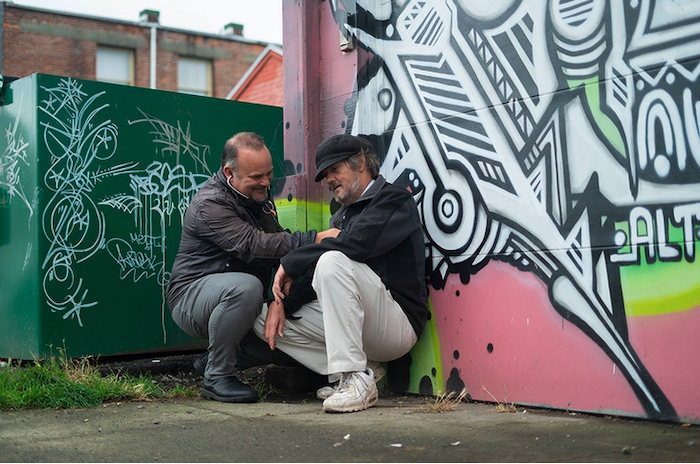
Death may be the great equalizer but the availability of good end-of-life care is rarely equitable. Now, a new mobile palliative care program designed to address that inequity is providing care and dignity to people with life-limiting illnesses who are homeless and living in poverty in Victoria.
The Palliative Outreach Resource Team (PORT) is a collaboration of the University of Victoria, Island Health, Victoria Cool Aid and Victoria Hospice. PORT acts as a bridge between people with serious illness and their caregivers, palliative care, and other health and social support systems.
The program is built upon lessons learned from a three-year study led by UVic palliative care researcher Kelli Stajduhar, lead investigator of the Equity in Palliative Approaches to Care program with the Institute on Aging & Lifelong Health and the School of Nursing. The study followed 25 people living homeless or barely housed while struggling with life-threatening medical conditions. The 2018 report Too little, too late: How we fail vulnerable Canadians as they die and what to do about it, found that homeless and barely housed people have to navigate many systems—health care, housing, social care—and that as their health declines, their ability to access these systems also declines. The big takeaway: despite a terminal diagnosis of cancer, heart failure or lung disease, those who were able to access palliative care actually experienced an improvement in quality of life.
For PORT’s first year, the clinical team will be funded by Island Health and Saint Elizabeth Health Community Enterprise, a social enterprise with a commitment to end-of-life care for marginalized communities. Mirroring similar models in Toronto and Calgary, people can self-refer or be referred by their caregivers to a palliative care nurse and a physician who provide whole person care, manage the pain and symptoms related to life-limiting illness, support chosen family and caregivers, and provide grief and bereavement support. Chosen family and caregivers in this population include “street family” and shelter, housing, harm reduction, and peer and support workers from inner-city community organizations who are doing the bulk of end-of-life care for people living in poverty.
The Vancouver Foundation is funding the UVic-led evaluation of the program, as well as the development of initiatives to increase access to and quality of palliative care in the inner city. The PORT team, which began service in July, has supported three deaths and is currently supporting seven people who are dying.
“For almost a decade, providers in our community have cobbled together resources to meet the needs of our clients who are living with unmet palliative needs,” says Grey Showler, director of health and support services at Cool Aid. “We are thrilled to see PORT come to life.”
“Over the next year, we will be implementing this model of palliative care in collaboration with organizations and people who have expertise in care and support for homeless and vulnerably housed people at end-of-life including street families,” says Jill Gerke, director of the palliative and end-of-life care program with Island Health. “We are using research and promising practices to inform the development of this model adapted to our community that bridges existing support and services.”
“Palliative care isn’t a ‘thing’ or a ‘place’ but an approach that focuses on whole-person care for the person, their family and community. This approach necessitates a community response where everyone sees their responsibility and their part in care for dying people,” says Stajduhar.
Complete Article ↪HERE↩!
